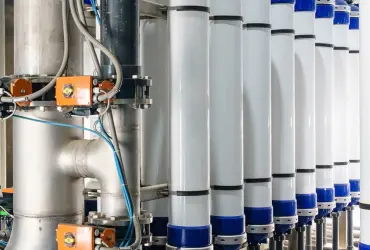Turn All Business Travel Into a Holiday
with a Team That Understands
What You Need
Upcoming Trade Shows in Germany for Recycling

IFAT 2026, Munich, Germany
4 - 7 May 2026

FILTECH 2026, Köln, Germany
30 Jun - 2 Jul 2026
When it comes to the waste management and recycling industry, Germany has served as a prime example of how to practice sustainability right. Over the past two decades, the country has implemented robust policies, innovative recycling programs, and financial incentives to encourage responsible waste disposal. With one of the highest recycling rates in the world, Germany continues to refine its waste management strategies to further reduce environmental impact and promote a circular economy.
Germany’s recycling industry has become what it is today thanks to the foundations laid down by decades of progressive policies. As early as 2002, the country was recycling 56% of its waste, a figure that has steadily increased. By 2019, Germany had already surpassed the European Union’s 2035 target of a 65% recycling rate, achieving approximately 67%. A key driver of the country’s waste management efficiency is the 2012 Circular Economy Act, which reinforced the country’s drive to reducing waste and maximizing resource recovery. This law established clear recycling targets and prioritized waste prevention, reuse, and recycling over landfill disposal.
One of Germany’s most effective waste management tools is its Deposit Refund System (DRS), which incentivizes consumers to return used beverage containers. When purchasing drinks, consumers pay a deposit ranging from €0.08 to €0.25 per bottle, which is reimbursed upon returning the empty container to designated collection points. This pricing structure encourages recycling and reduces plastic waste. Higher deposits on single-use plastic bottles make them less attractive, further promoting the use of reusable alternatives. As a result, Germany boasts an exceptional return rate for beverage containers, exceeding 90%. Germany’s waste management strategies align with EU directives aimed at improving sustainability across member states. The 2008 Waste Framework Directive and its 2018 amendment introduced ambitious recycling targets for municipal waste: 55% by 2025, 60% by 2030, and 65% by 2035.
GET A FREE QUOTE
Looking for a hotel accommodation for particular trade show or exhibition.
Send us a general enquiry and we will find the best options for you
Send us a general enquiry and we will find the best options for you